Building housing units which are resilient to floods and self sufficient in the worlds lowest lying islands of Maldives and empowering local industries through the process.
Long Description
The Context and Crisis:
Islands in Maldives get flooded during rainfalls and swell waves, the 2004 tsunami led to groundwater contamination resulting in scarcity of freshwater resource adding to the distress. It gets further complicated when in order to compensate the requirement, water is bought in packaged bottles and bottles are later dumped along with other waste resulting in hills of waste on abandoned islands and waste entering the sea around affecting the sensitive marine ecosystem.
The opportunity: Flood resilient Co-housing
Providing shared spaces within housing or communities creates a sense of responsibility towards the environment, which brings the concept of Co-housing into the picture. The idea is to provide water storage, water treatment, electricity generation through solar panels and gardening as common services for two or more houses instead of providing these services individually for each house. The major advantages will be the money saved and better services.
Further resilience to flood is achieved by creating a concrete hull which is hollow on the inside and houses the water storage and grey water filter in an area 1/8th of the hull area at its center and the prefab housing units are mounted on either side of it. As the area starts flooding the hull starts to rise along with rising water levels due to its hollow core and large base area, protecting the housing units from damage.

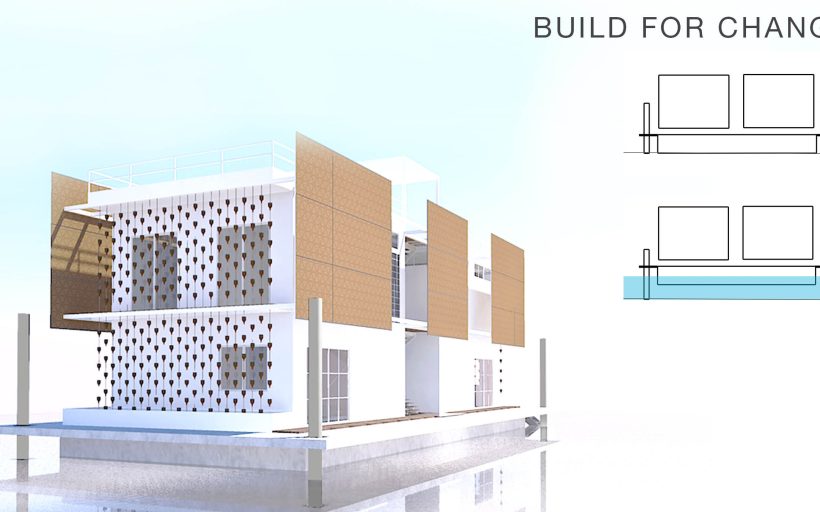
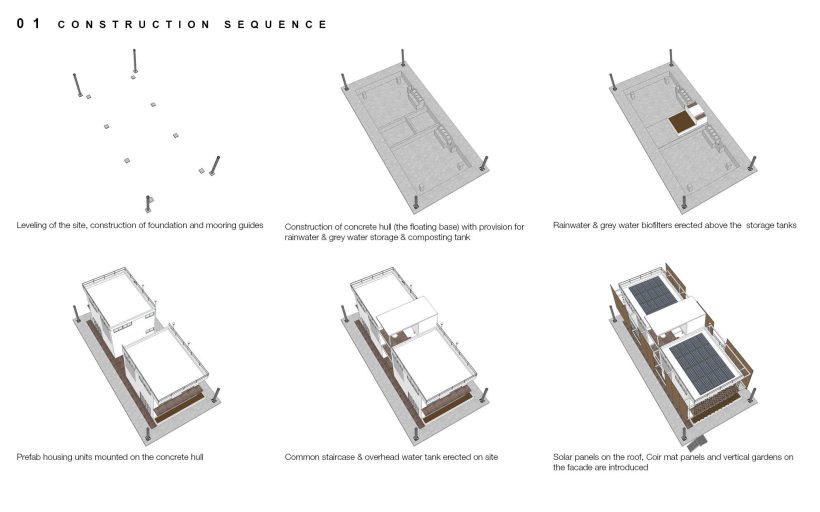
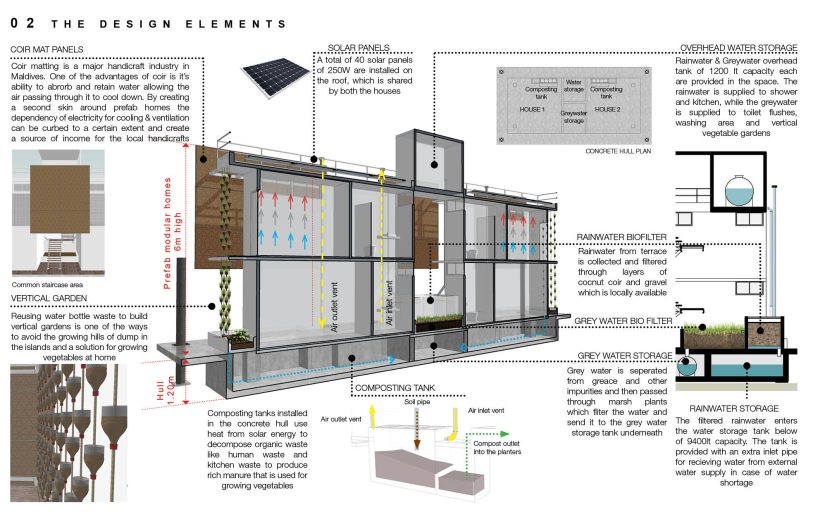
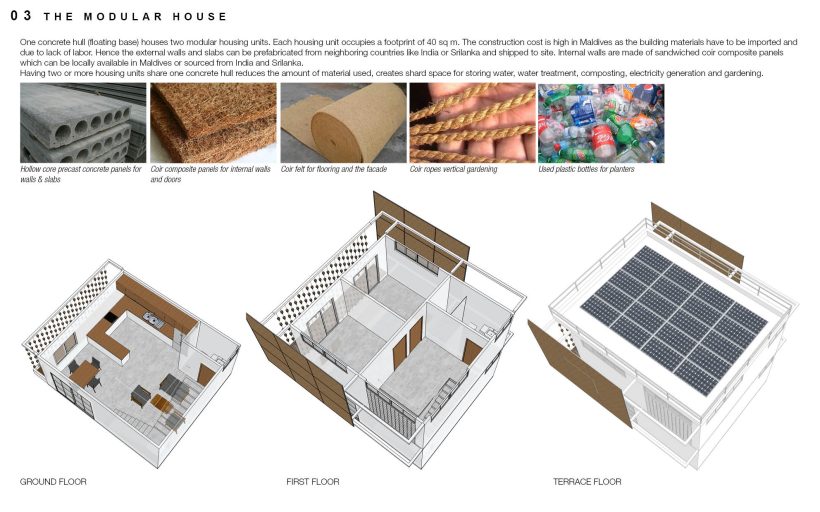

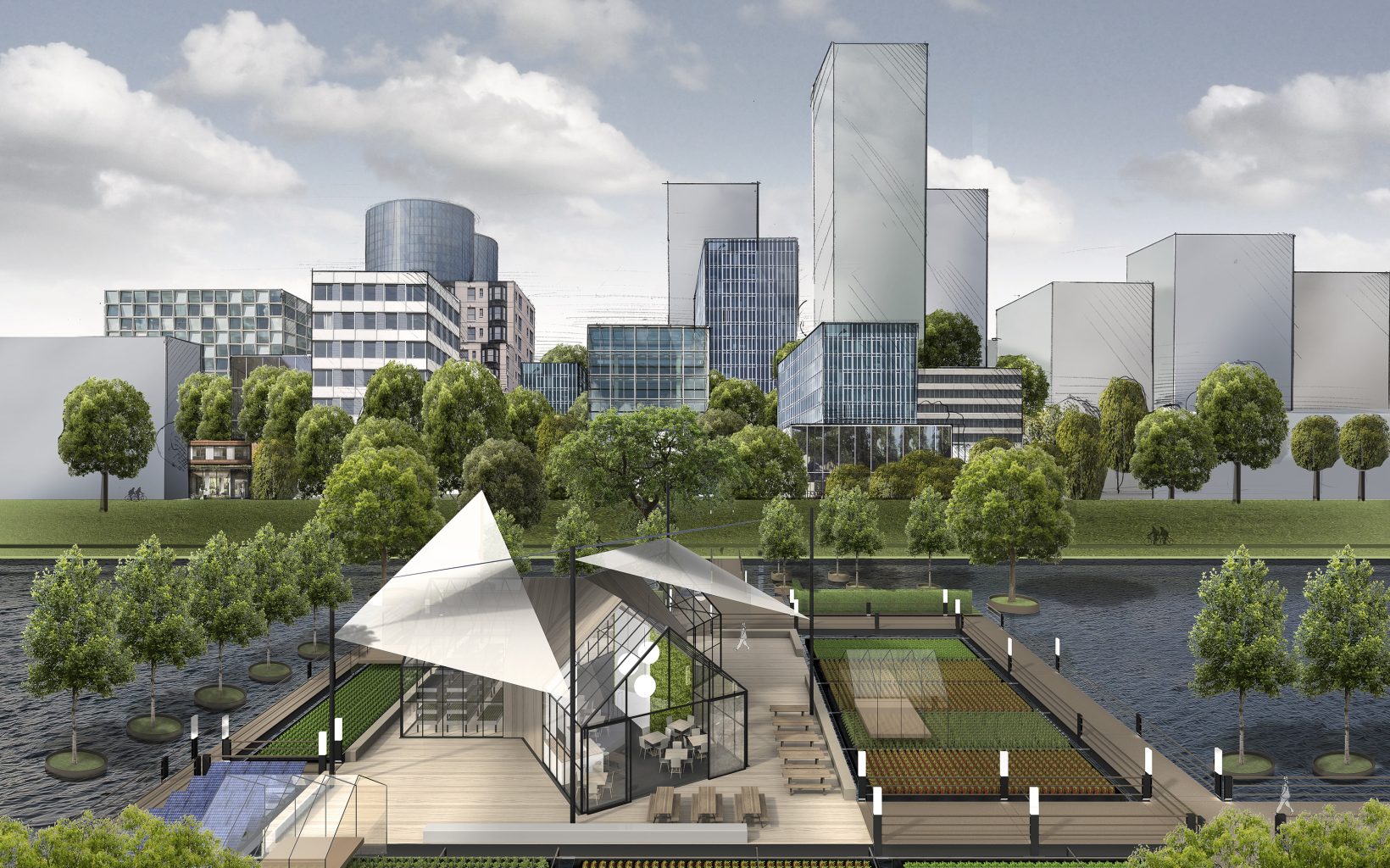


Share on social media.
Facebook
Twitter
LinkedIn
Mail